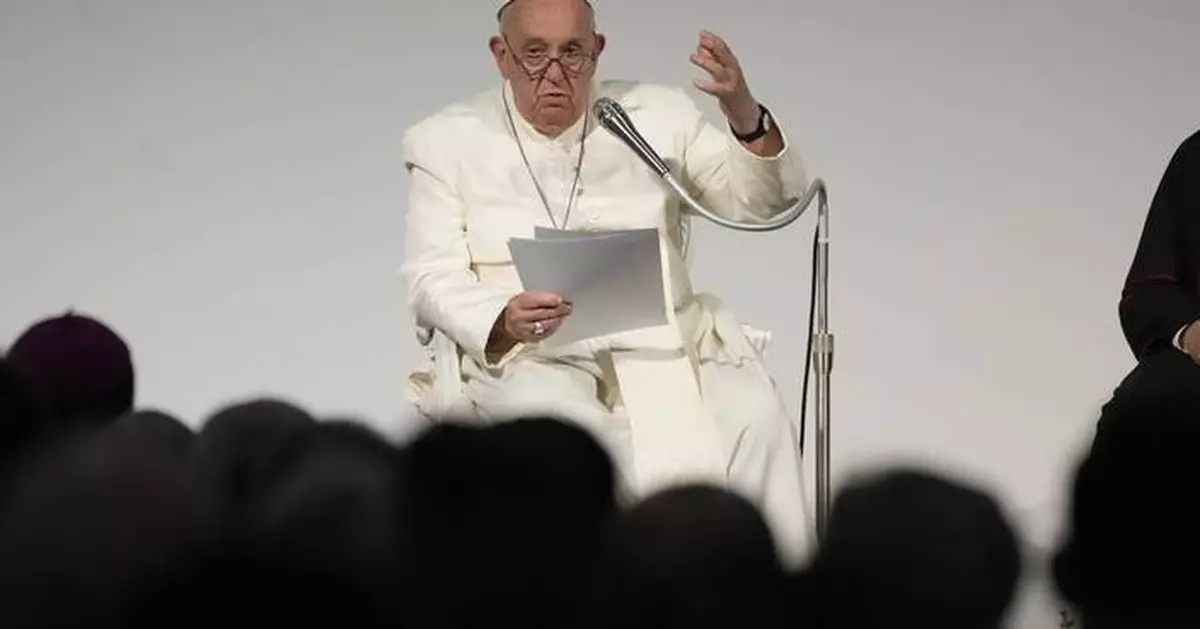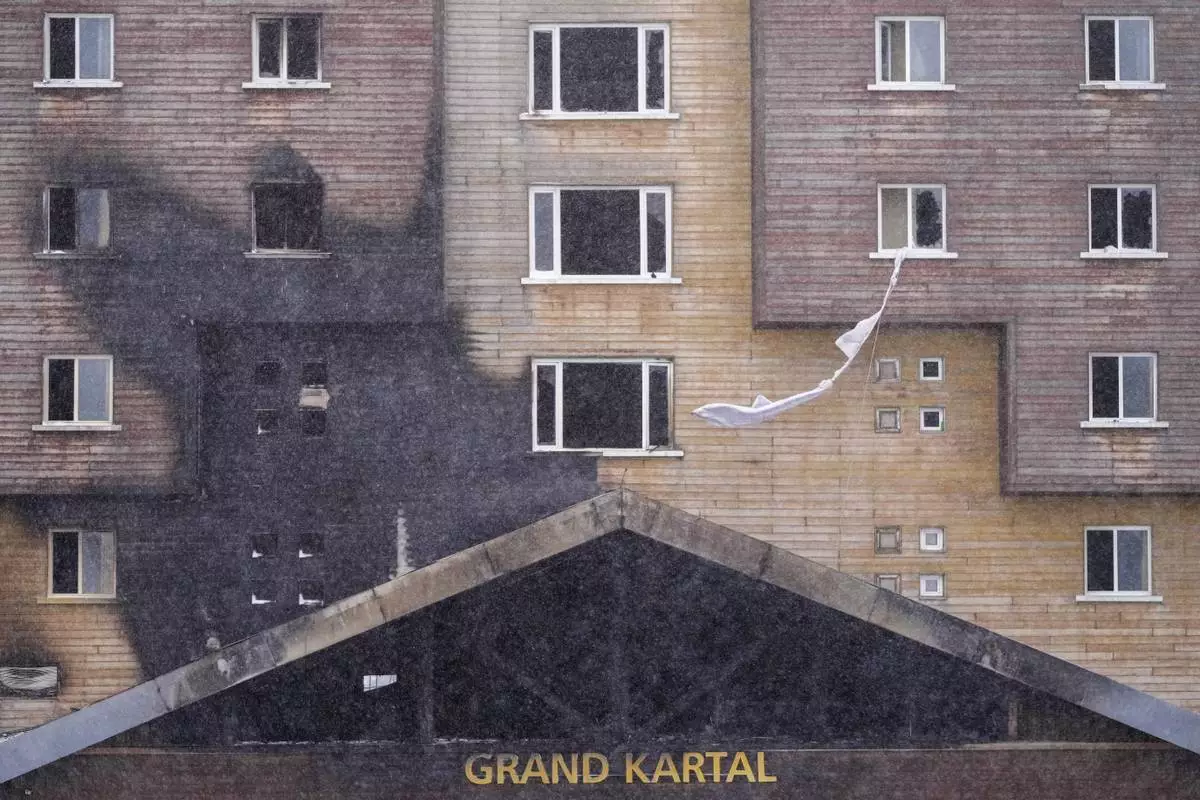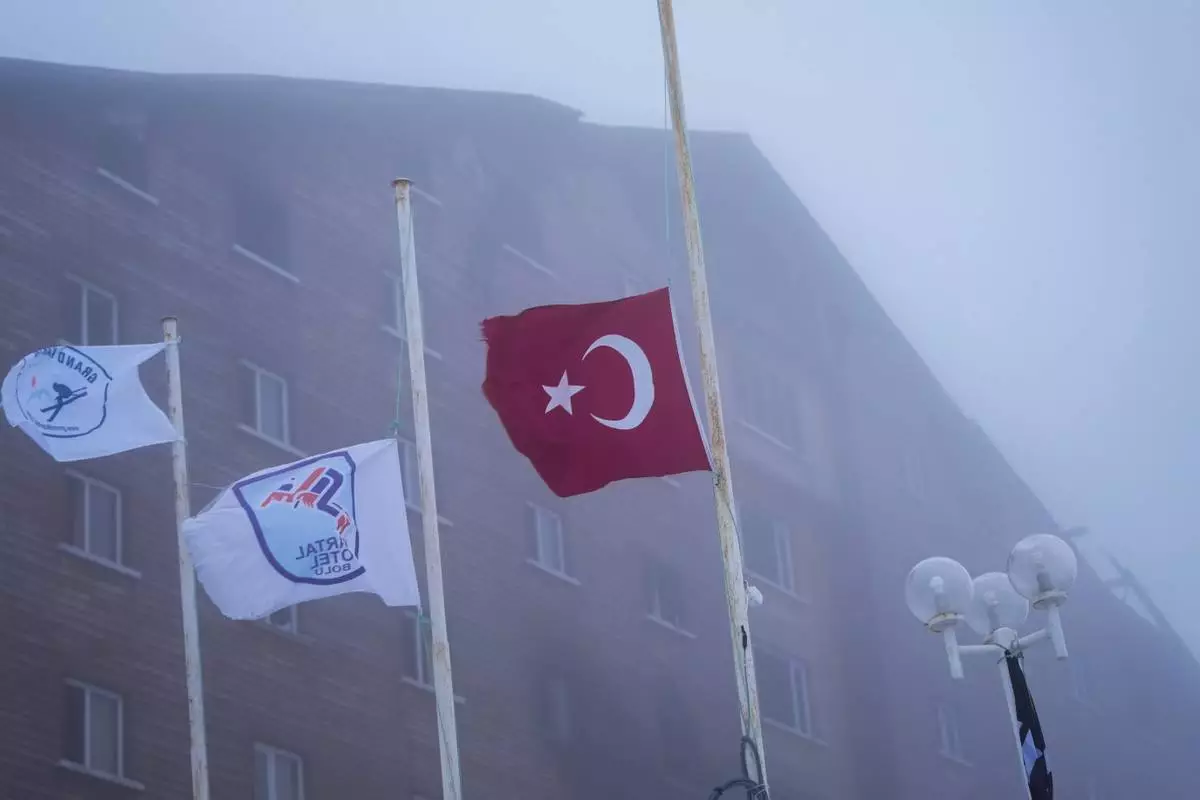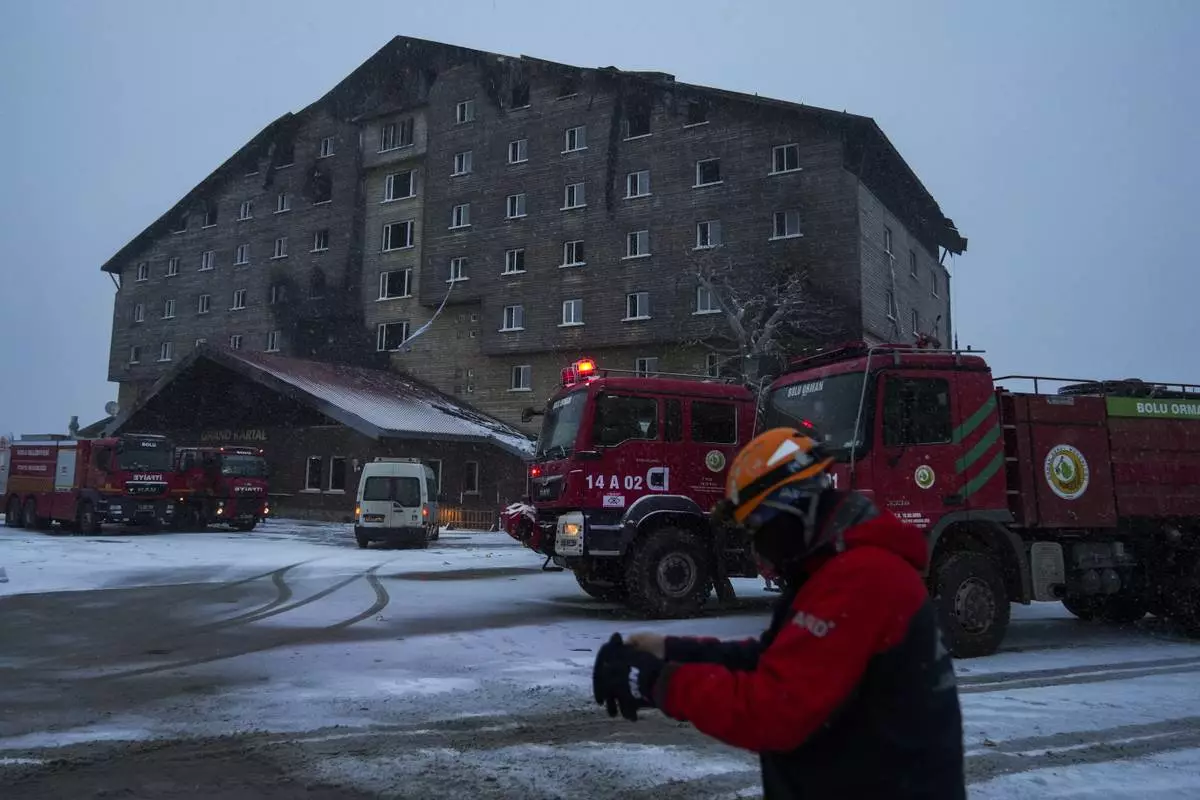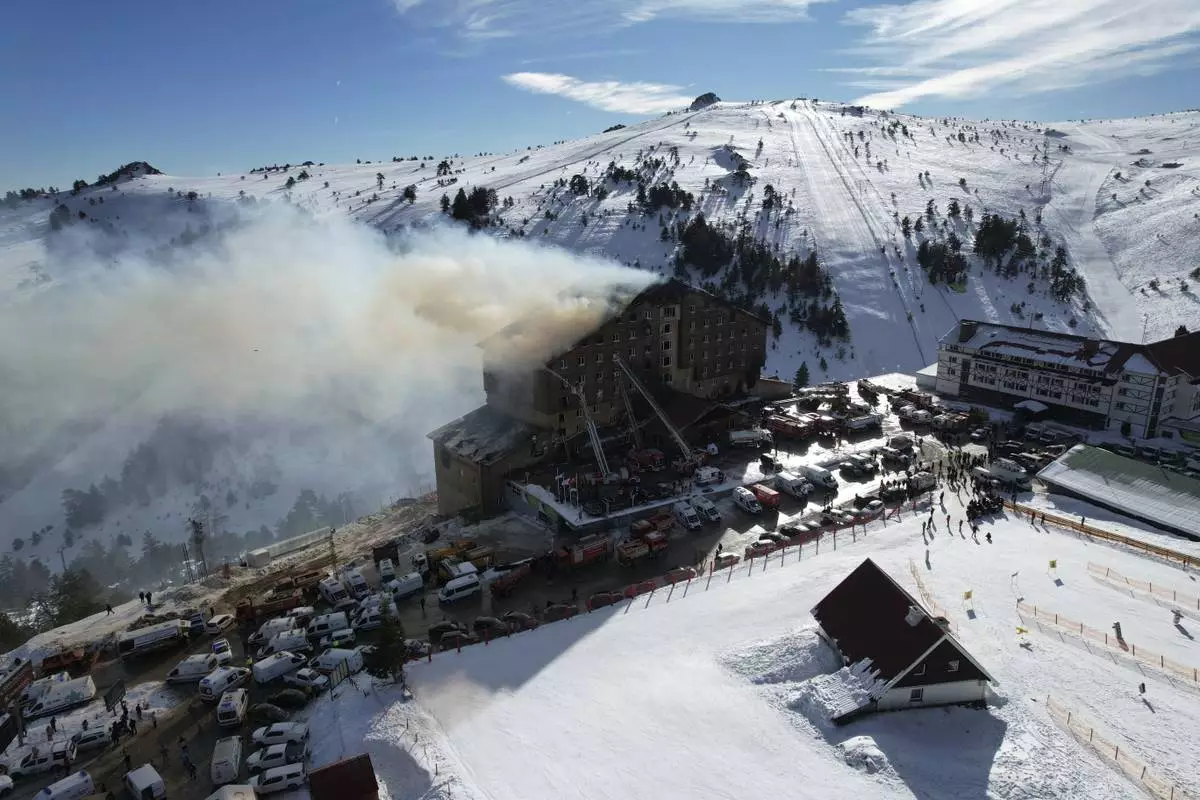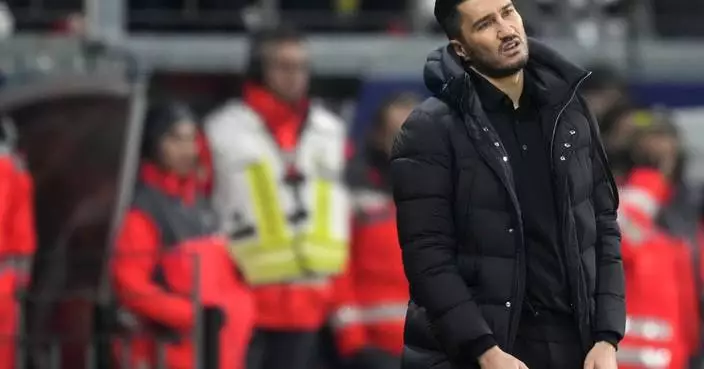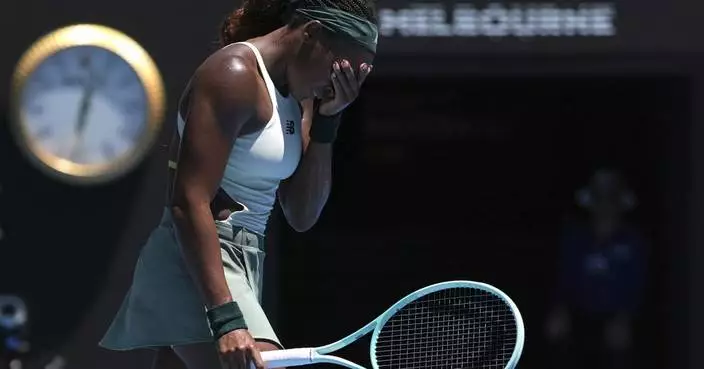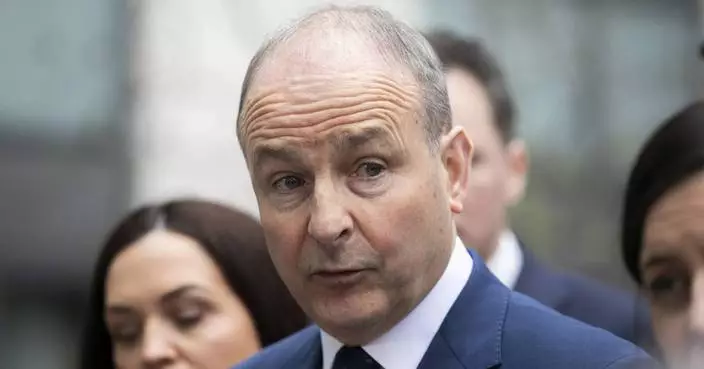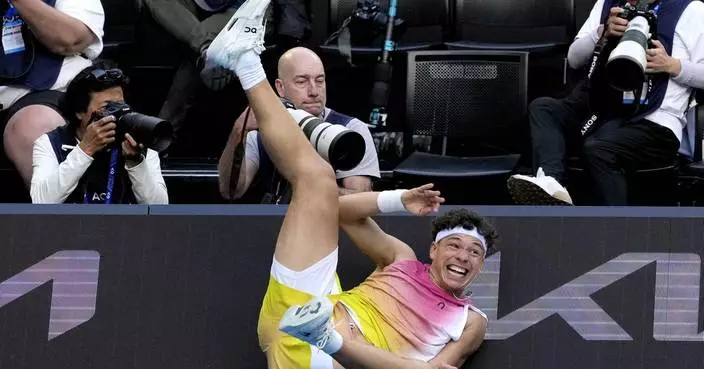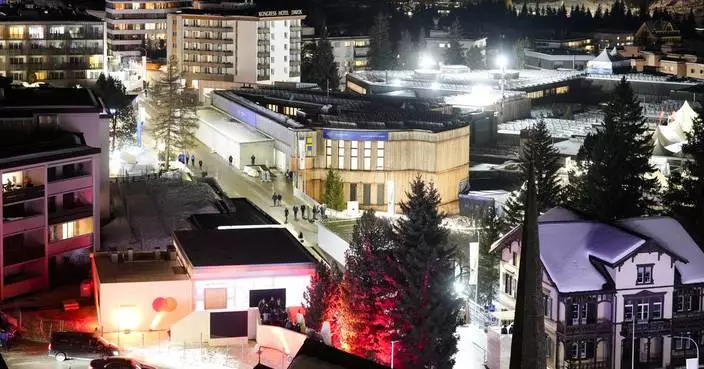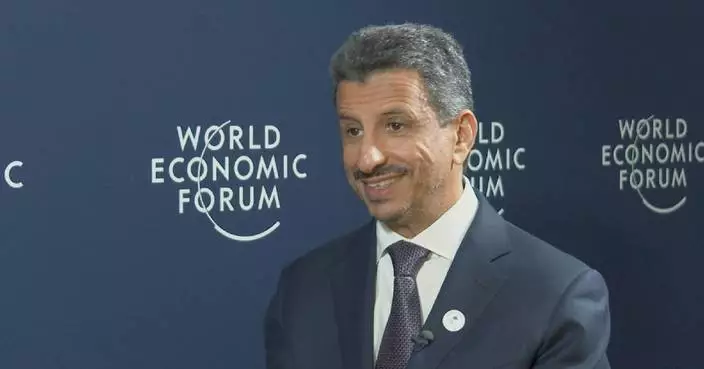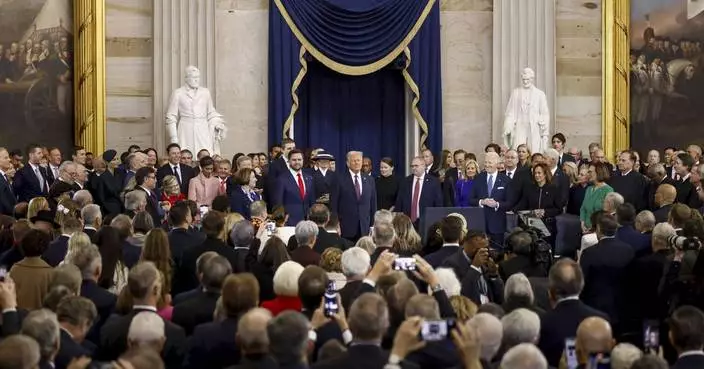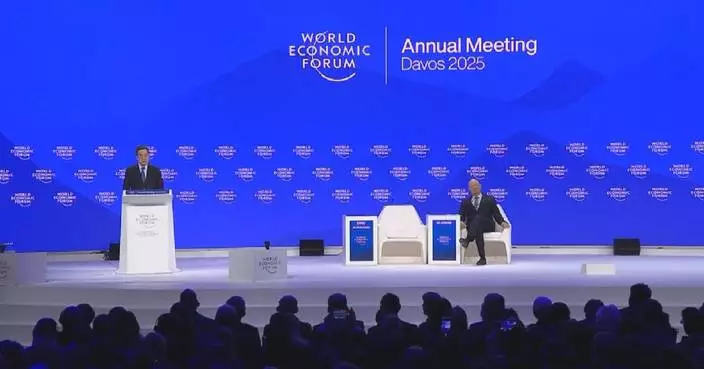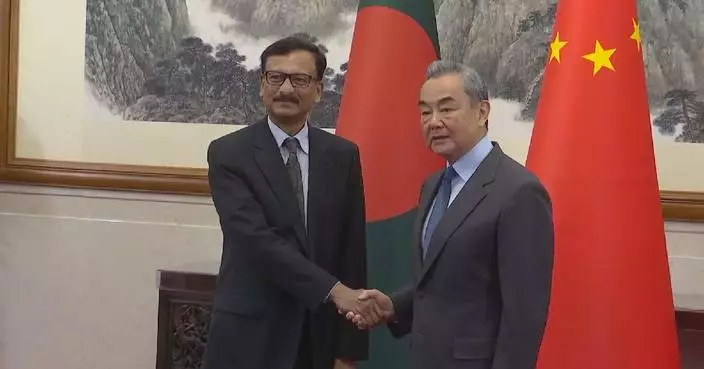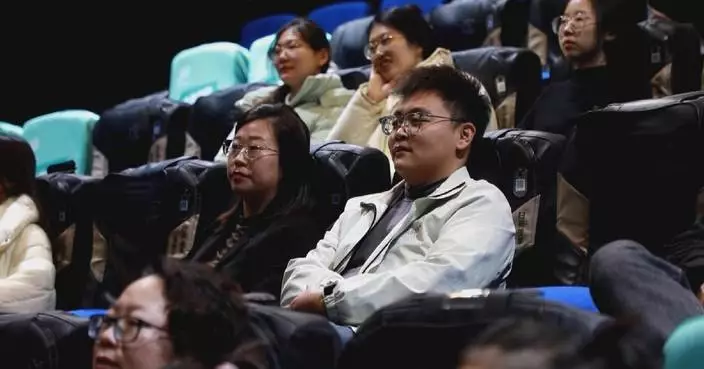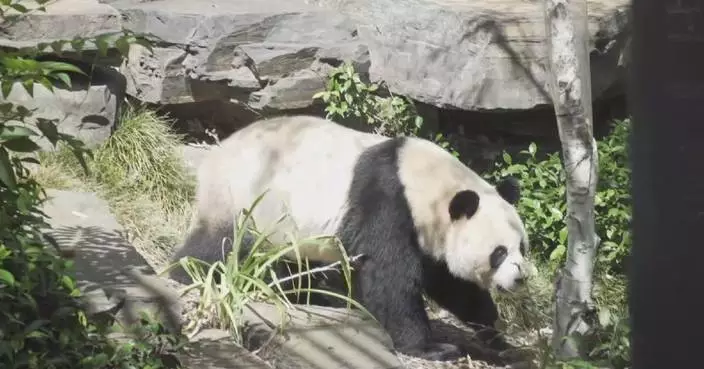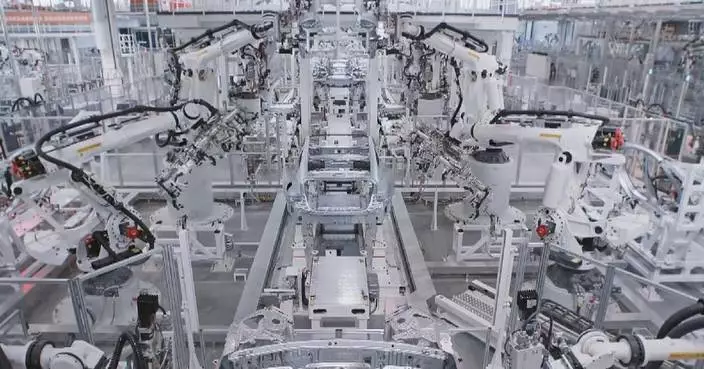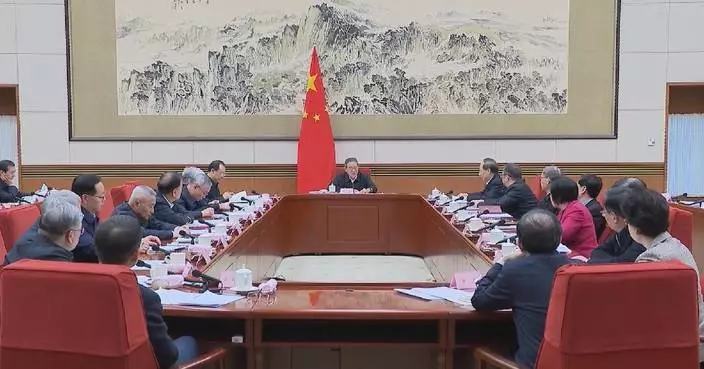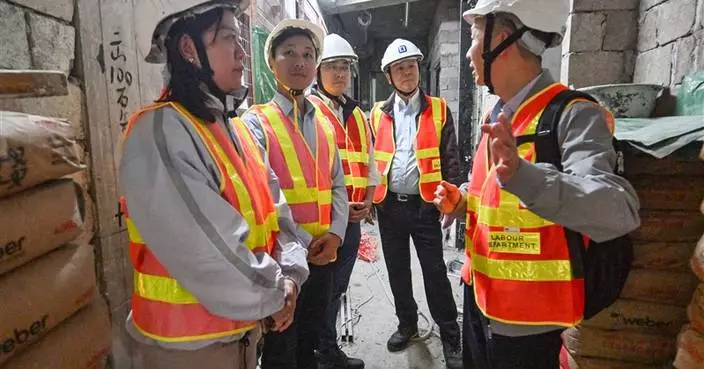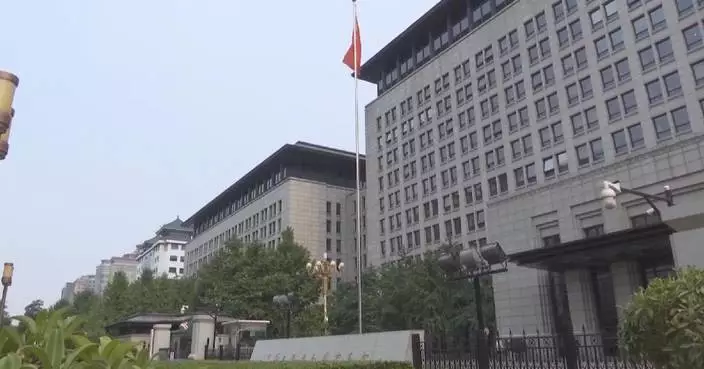ROME (AP) — The Vatican’s chief prosecutor has strongly defended the integrity and fairness of the city state’s justice system following criticism that Pope Francis' absolute power and his interventions in the so-called “trial of the century” last year violated the defendants’ fundamental rights.
Prosecutor Alessandro Diddi's defense comes as the Vatican tribunal finalizes its written reasonings for its December 2023 verdicts. The tribunal convicted a cardinal and eight others of various financial-related crimes related to the Holy See’s 350 million euro investment in a London property, but has not yet explained its decisions.
Diddi published an essay last month in a peer-reviewed Italian journal, “Diritto e religioni” (Law and Religion) though he was not identified as the Vatican’s top criminal prosecutor, in keeping with the journal's practice. Legal experts said such a publication in an academic journal was unusual, since Diddi is a party to a trial that is heading into the appeals phase.
He was essentially replying to two academics — and lawyers representing some of the 10 defendants — who have raised questions about whether the two-year trial and preceding investigation were fair.
Their critiques have raised more fundamental concerns about whether a fair trial is even possible in an absolute monarchy where the pope wields supreme legislative, executive and judicial power — and used it in this case.
These critics have cited Pope Francis’ role in the trial, since he secretly issued four decrees during the investigation that changed Vatican procedures to benefit prosecutors. And they have called into question the independence and impartiality of the tribunal itself since its judges swear obedience to Francis, who can hire and fire them at will.
Francis recently named several of his closest allies — cardinals with no experience in Vatican law — to sit as judges on the Vatican's highest court of appeal and issued new rules on judges' salary and pension benefits.
In his essay, Diddi argued the trial and Vatican system itself were most certainly fair. He insisted that the tribunal and its judges were fully independent and that the defense had every opportunity to present its case. He said the pope’s four decrees merely filled regulatory loopholes in the Vatican's peculiar legal code and had no impact on the outcome of the trial or the rights of the defendants.
“Even though the Holy See isn’t a signatory to the European Convention on Human Rights, it doesn’t place itself outside the international community and doesn’t renege on the principles that inspire it,” Diddi wrote.
The four secret decrees were signed by the pope in 2019 and 2020, giving Vatican prosecutors wide-ranging powers to investigate, including via unchecked wiretapping and to deviate from existing laws in allowing them to detain suspects without a judge's warrant. The decrees only came to light right before trial, were never officially published, provided no rationale or timeframe for the surveillance or detention, or oversight by an independent judge.
Diddi denied the decrees impacted the suspects’ rights. He said they merely provided an “authentic interpretation” by the pope to Vatican norms.
He argued that regardless, the decrees only “disciplined some particular aspects of the investigation,” and “and did not determine any failure in the guarantees offered to the suspects.”
Geraldina Boni, a canon lawyer who provided a legal opinion for the defense of Cardinal Angelo Becciu, has written that the decrees represented a clear violation of the right to a fair trial since the suspects didn't know about the broad powers granted to prosecutors until they were on trial. One defendant who came in for questioning was jailed for 10 days by prosecutors.
Diddi noted that Swiss and Italian courts have previously recognized the independence and impartiality of the Vatican City State's legal system in agreeing to provide judicial assistance in freezing assets of the suspects.
Those rulings, however, were issued before the current trial ended and the decrees' existence known. Additionally, a British judge ordered the assets of one of the suspects released because he found “appalling” misrepresentations and omissions in Diddi's case.
Questions about the fairness and impartiality of the Vatican City State’s legal system could have implications for the Holy See down the road, since the Vatican relies on other countries to cooperate in law enforcement investigations and implement its sentences. These countries might be less willing to cooperate if they doubt the fairness of the system.
Additionally, whenever the Holy See signs commercial contracts with non-Vatican entities, it insists that any contract dispute be handled by its own tribunal. That contractual clause could become difficult to negotiate if there are questions about whether the other side will be treated fairly by the Vatican court.
Less hypothetically, the Holy See is subject to periodic review by the Council of Europe’s Moneyval commission, whose evaluators analyze the effectiveness of the judicial system in fighting money laundering and terrorist financing.
In a related development, the Vatican’s No. 3 official on Monday wrapped up three days of testimony in a London court in a spinoff counter-suit brought by one of the Vatican defendants.
Raffaele Mincione, a London-based financier, is seeking to have the British High Court declare that he acted “in good faith” in his dealings with the Vatican over the London property. He is hoping to clear his name and repair the reputational harm he says he and his firm have endured as a result of the Vatican trial.
Mincione has also filed a complaint with the U.N. human rights office in Geneva, claiming that the pope violated his rights by authorizing surveillance via the decrees. The Vatican has rejected the claim, saying in a press statement that the investigation followed all relevant laws and international agreements and that no surveillance was actually ordered for Mincione.
Mincione, and the other defendants, have announced appeals.
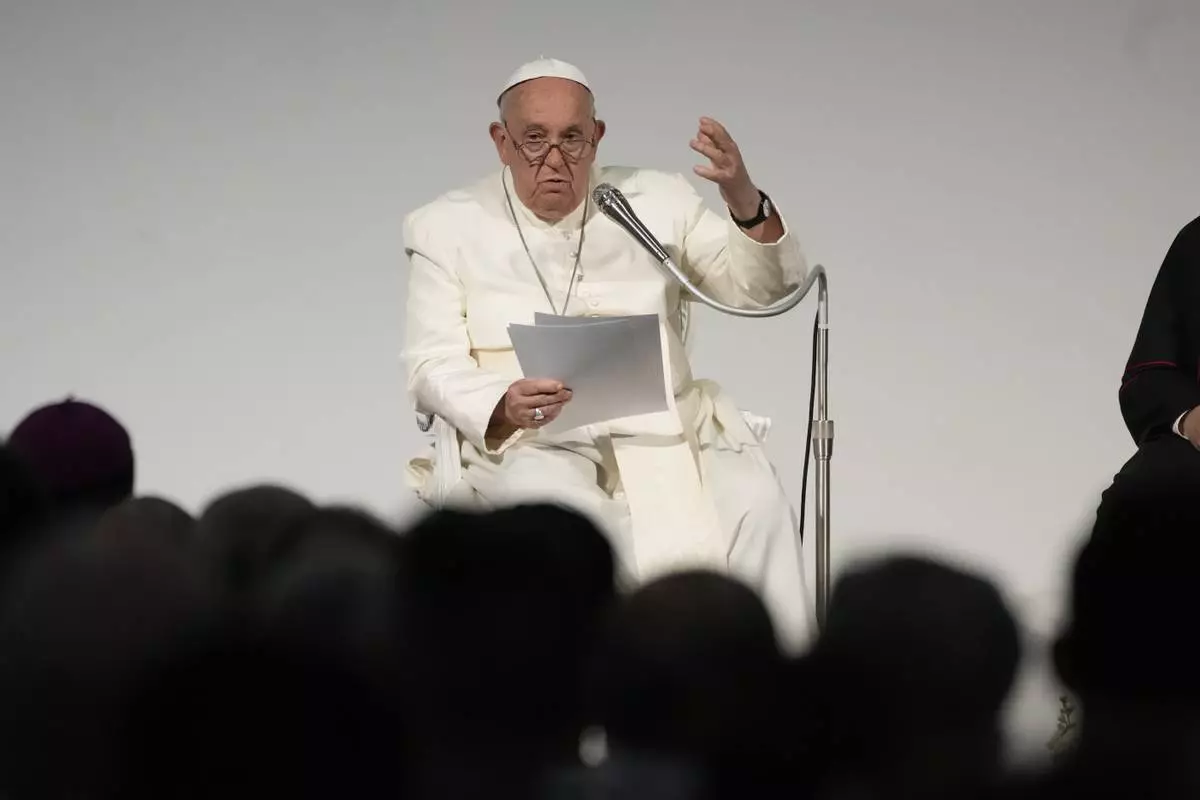
FILE - Pope Francis attends a meeting with the participants of the 50th Social Week of Catholics in Italy, in Trieste, Italy, on July 7, 2024. The Vatican’s chief prosecutor has strongly defended the integrity and fairness of the city state’s justice system, amid criticism that Pope Francis' absolute power and his interventions in the recently-concluded “trial of the century” violated the defendants’ fundamental rights. (AP Photo/Alessandra Tarantino, File)


